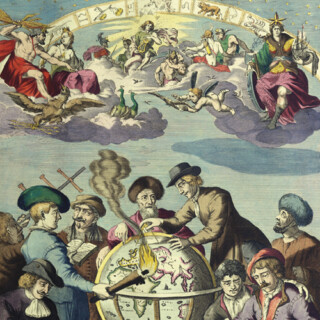[Cities, Sea-ports, and Capital Towns]
London,
engraved by S. & N. Buck, No. 1 Garden Court, Middle Temple,
1728-1749.
Oblong folio (315 by 815mm). 24 engraved plates printed on single sheets, occasional light spotting, a few edges slightly frayed with light dust soiling, but not into images, contained in a modern green cloth box.
12888
notes:
One of the largest collections of the Bucks' views to come to the open market, and the images used for Ralph Hyde's book 'A Prospect of Britain: the town panoramas of Samuel and Nathaniel Buck'.
The 80 plates represent the Bucks' second series of town prospects, which they composed alongside their Antiquities, London: 1726-1753. There are three distinct groupings: Nottingham, Ely, Lincoln, Leicester, Stamford, Cambridge, all with a publication date of March 25th ...
The 80 plates represent the Bucks' second series of town prospects, which they composed alongside their Antiquities, London: 1726-1753. There are three distinct groupings: Nottingham, Ely, Lincoln, Leicester, Stamford, Cambridge, all with a publication date of March 25th ...
bibliography:
provenance:







![BUCK, Nathaniel. [Cities, Sea-ports, and Capital Towns]](https://i0.wp.com/crouchrarebooks.com/wp-content/uploads/2025/03/12888_1H.jpg?fit=1700%2C672&ssl=1)
![BUCK, Nathaniel. [Cities, Sea-ports, and Capital Towns]](https://i0.wp.com/crouchrarebooks.com/wp-content/uploads/2025/03/12888_2H.jpg?fit=1700%2C682&ssl=1)
![BUCK, Nathaniel. [Cities, Sea-ports, and Capital Towns]](https://i0.wp.com/crouchrarebooks.com/wp-content/uploads/2025/03/12888_3H.jpg?fit=1700%2C700&ssl=1)
![BUCK, Nathaniel. [Cities, Sea-ports, and Capital Towns]](https://i0.wp.com/crouchrarebooks.com/wp-content/uploads/2025/03/12888_4H.jpg?fit=1700%2C682&ssl=1)
